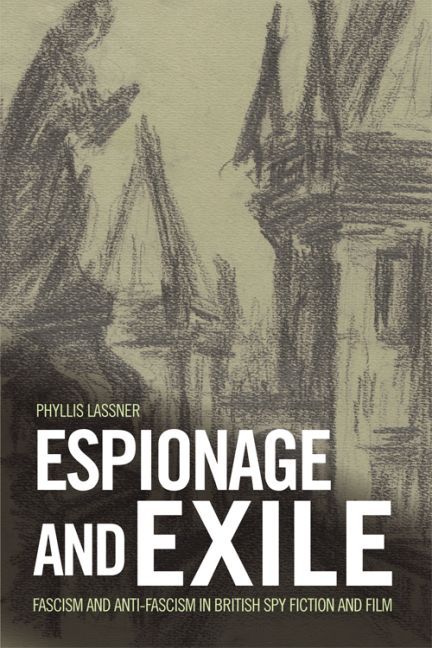Book contents
Introduction: Exile – The Heart of the Secret World
Published online by Cambridge University Press: 12 September 2017
Summary
On 9 July 2010, the FBI completed an investigation called ‘Operation Ghost Stories’ and arrested ten Russian spies acting as sleeper agents in the United States. The FBI Illegals Program discovered that these agents were trying to acquire secret intelligence by masquerading as ordinary Americans while socialising with corporate executives, academics and government officials. Newspaper stories highlighted the agents’ disguise as middle-class suburban families, upsetting popular images of spies as turbo-driven loners in covert wars against megalomaniac enemies. The ‘Ghost’ story, with its bizarre but reality-based context, combining familiar tropes of the spy thriller with a defamiliarising political narrative, has been transformed into an acclaimed American TV series, The Americans. As I write, the series is going into its fourth season, continuing to entice viewers as the 1980s KGB protagonists/antagonists become ever more sympathetic to viewers, even while committing their dastardly deeds.
One of the series’ key surprises is its focus on romantic and family tensions in the protagonists’ marriage of political convenience. While casting women in spy thrillers as protagonists and antagonists has become more prominent in recent years, the intensity with which Elizabeth commits her assassinations compared to Philip's increasing doubts calls attention to gender as a category of espionage and exile, and in so doing, unsettles the genre's contrasting representations of masculinity and femininity. With the possibility of returning to Russia an everreceding promise and premise, the conflicting responses of Elizabeth and Philip Jennings to being Americans heighten their gendered differences as well as the series’ suspense. The focus has shifted from the genre's high speed chases to the couple's working and domestic roles and troubled responses to their irrevocable exile. For Elizabeth, exile threatens her devout Russian identity and politics, while for Philip, exile incites his critical questioning. Kader Konuk offers an analytical framework for viewing the place of exile in espionage fiction: ‘Exile has typically been analysed not as a site for the contestation of hegemonic identity formations, but as a site for the development of critical consciousness. More so than diaspora, exile has served as an epistemological category, drawing attention to the ways in which knowledge is produced and transformed under exilic conditions’ (31).
- Type
- Chapter
- Information
- Espionage and ExileFascism and Anti-Fascism in British Spy Fiction and Film, pp. 1 - 15Publisher: Edinburgh University PressPrint publication year: 2016



